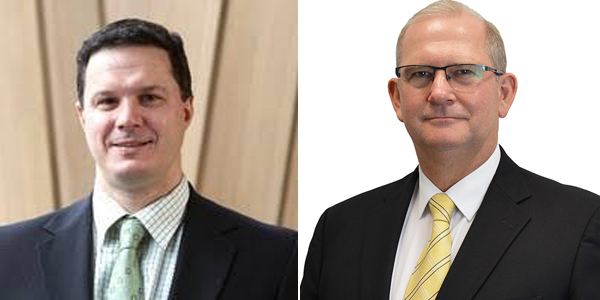ACSA reinvigorates itself, right on time
The Australian Custodial Services Association, one of only two industry bodies which can genuinely be considered to be apolitical, has embarked on a new growth path, having appointed its first chief executive for many years and drawn up a clear program of study and member engagement. Given the Royal Commission, there is no better time for the association to be reinvigorated.
In an interview recently, Rob Brown, the association’s (ACSA’s) first chief executive for more than 20 years, after the retirement of founder John Gall, and David Knights, a general manager at NAB Asset Servicing and the current chair of ACSA, outlined the plans for the short and medium term. They and their fellow committee members have been addressing the industry changes.
A bit like FEAL (the Fund Executives Association Ltd), ACSA aims to encourage discussion and shared insight for participants in its part of the industry and – more so than FEAL, given the ACSA members’ field of knowledge – dispassionate advice on regulatory matters, especially implementation. Neither organisation lobbies politically. Knights says, though, that ACSA wants to have, and does have, dialogue with all other bodies.
Brown says: “We are seen as neutral. Our relationship with the regulators is very important to us… We are now being invited to liaise with the regulators and others, including the Government, earlier in the cycle.”
A big issue, for instance, is the ‘RG97’ requirement whereby managers, super funds and their custodians have to provide more detailed information on fees and other costs. This is an ASIC consumer thing rather than an APRA systemic thing. But the two fields increasingly overlap. The Government commissioned Darren McShane to report on the matter. He is a former director of Hong Kong’s pension regulator who delivered his 223-page report this year. It was predictably supportive of the new regulation.
ACSA met with McShane and Knights says RG97 is an “ongoing issue”. Knights says: “We contributed to the initial working group two years ago and looked closely at the proposals. It’s not as simple as you’d think. There are things which are not in the accounts [of super funds] such as the market impact of transacting.”
ACSA this year also formed a new “members and services” group which is studying what the organisation can do better for its 31 member organisations and the wider investment community it serves. “We want to make sure that we know what the members want to get out of our activities and what we can deliver,” Knights says.
Last year it formed a new “strategy and advocacy group” sub-committee of the board with the aim to be more proactive about policy, major trends and possible regulatory changes. “We are also getting back to grass roots,” Knights says. “For example, communicating the expanded role of the custodian is becoming more important..”
Until Brown, a former chief executive of NAB’s Ausmaq and before that a senior executive at HSBC and State Street, joined last year, most of the work done for ACSA was on an honorary basis, except for secretarial and office support. .
Custody and other parts of securities servicing have changed in many ways in recent years, along with other parts of the industry. For instance, many of the entry-level processing roles, which usually went to young accounting graduates either no longer exist or have been consolidated into processing centres offshore including China, India and the Philippines. But, on the other hand, roles in custody and investment administration can lead to bigger and better-paid jobs in funds management or, increasingly, at super funds. Importantly, the roles in custody are becoming more interesting as offshore workers – and, soon, robots – take over the more menial tasks. BNP Paribas has recently introduced its first robot into the security services area.
ACSA has also combined its corporate actions and operations working groups, which were becoming increasingly overlapping anyway. A big deal for ACSA members, and the whole industry, is the ASX schedule to replace CHESS with a distributed ledger technology (blockchain) from next year.
Knights, who has been ACSA chair for three years, points out that, inevitably, there is an increasing trend for more compliance reporting, which impacts securities services firms more than most. He says, though, “the federation of data” is a much bigger issue. There will be increased scrutiny in the due diligence process, he says. Perhaps we can worry less about the accounting types in compliance, in future, hopefully.
Meanwhile, ACSA is continuing to provide forums, Brown says, whereby subject-matter experts can get together and look at various issues, such as further automation of processes. In the settlements space, which is about to undergo enormous change in Australia, ACSA is looking beyond its membership base, too, and to the efficiency of the whole market.
“The old chestnut of managed funds, which are still a highly inefficient part of the market,” Brown says, “is something we continue to look at to, hopefully, make sure people understand the systemic issues that we can only solve by working together.”
– G.B.










